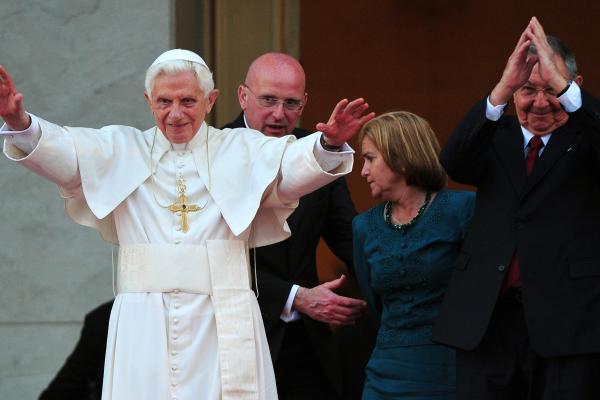Mar 27, 2012
Pope Benedict XVI’s 3-day visit to Cuba began Monday, when President Raul Castro greeted the pontiff at the airport of Santiago de Cuba. The arrival was fairly quiet, but the evening Mass in Santiago’s plaza was attended by an estimated 200,000 Cubans. The pope's long-awaited visit attracted news coverage from around the world, mostly focusing in the pope’s message.
Read the Full Article

Already a subscriber? Login
